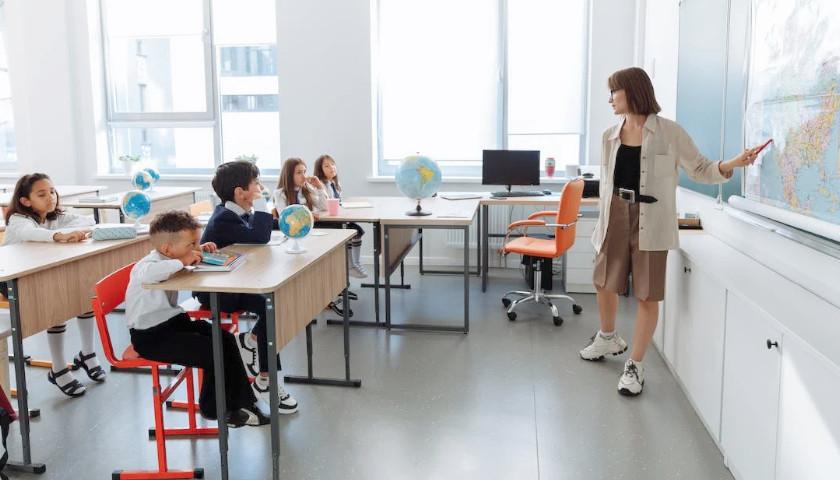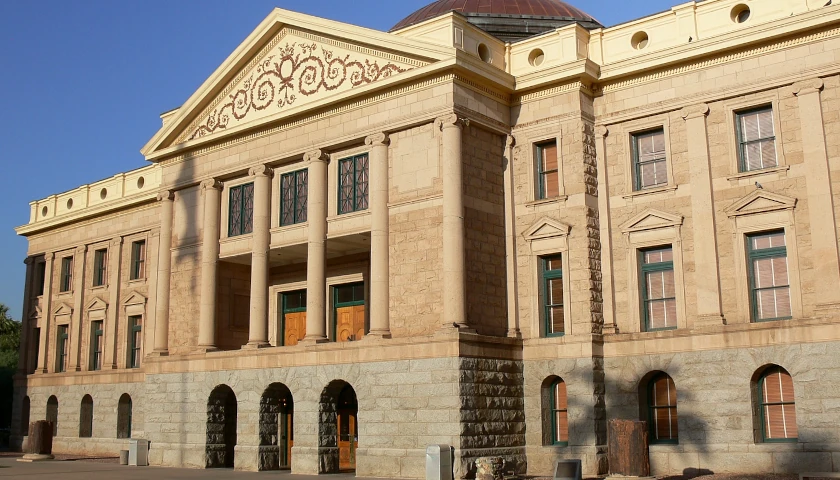The Arizona State Senate passed Senate Concurrent Resolution (SCR) 1009, sponsored by State Senator Ken Bennett (R-Prescott), which lifts the spending caps placed on public schools by the aggregate expenditure limit. This lifting will allow schools to spend a nearly $1.4 billion surplus in allocated funds.
“Senate Republicans have an uninterrupted history of always allowing our K-12 public schools to spend the money appropriated to them by the Legislature, and this year is no different,” said Bennett. “By far, our public education system receives the most money annually from our state budget.”
FOR IMMEDIATE RELEASE: Senate Republicans Prevent Teacher Layoffs, School Closures By Allowing Districts to Spend Historic Funding Increases Allocated in 2022-2023 Budget@votewarren @SonnyBorrelli @SineKerr @TJShopeforAZ @BennettArizona pic.twitter.com/7OsgrIPvUu
— AZSenateRepublicans (@AZSenateGOP) February 8, 2023
The AEL is a constitutional amendment passed in Arizona during the summer of 1980. The limit caps how much public schools can spend during a school year and changes over time to adjust for inflation and the number of students attending school. If the cap is exceeded, then public schools across the state are required to make budget cuts. The 2023 AEL is $6,402,355,366.
State Senator T.J. Shope (R-Florence) explained that the AEL was surpassed because of the large investments poured into the public school system in the Fiscal Year 2023 budget passed by Republicans in 2022. From 2015-2022, the legislature pumped $4 billion into Arizona’s school districts.
Schools would have needed to make cuts had the AEL not been lifted by March 1st. The Arizona House and Senate needed to approve raising the cap by a two-thirds majority. SCR 1009 passed the Senate by a vote of 23-7.
On Tuesday, the House passed their version of the lift, House Concurrent Resolution (HCR) 2001, sponsored by State Representative David Cook (R-Globe), by a vote of 46-14. Cook said the House passing the resolution was “fulfilling our [the legislature’s] word as a body of government” by allowing schools to spend the money already allocated.
The Arizona House of Representatives today approved my legislation to raise the AEL this year, so our schools can fully access the funds that the Legislature already appropriated for them. Here's my statement on why passing #HCR2001 was so important for rural schools. pic.twitter.com/2PmqlGhzlW
— David Cook (@RepDavidCook) February 8, 2023
However, the passing was not unanimous. As reported by The Arizona Sun Times, Arizona Freedom Caucus (AFC) members opposed the AEL lift. AFC Chairman State Senator Jake Hoffman (R-Queen Creek) said that because test scores in the state are low, he and other caucus members would not vote to pump more money into the schools until they received systemic reform to create better learning environments for Arizona children.
Every AFC member in the House and Senate stuck to their word and voted nay on SCR 1009 and HCR 2001.
Caucus member State Representative Joseph Chaplik (R-Scottsdale) said he voted no because there is no assurance that the extra money going to the schools will cause improvements.
“I voted NO to spending more taxpayer money with no assurance that it will boost teacher pay or even see the classroom,” Chaplik tweeted. “You don’t keep throwing money at a failing system without either changing the people who run it or the structure of how the money is spent.”
Today I voted NO on raising the AEL.
I voted NO to zero transparency of where and how our education dollars are spent.
I voted NO to spending more taxpayer money with no assurance that it will boost teacher pay or even see the classroom.
I thank my colleagues who joined me pic.twitter.com/Uejy6gSK02
— Rep. Joseph Chaplik 🇺🇸 (@JosephChaplik) February 8, 2023
Some members joined in voting no outside the AFC, such as State Senator Janae Shamp (R-Surprise), who agreed that reform is needed before handing out more money.
— AZSenatorShamp (@AZSenatorShamp) February 8, 2023
In any case, the AEL has been lifted, much to the delight of Arizona Gov. Katie Hobbs (D). However, Senate President Warren Petersen (R-Mesa) said the Senate would continue looking for ways to improve the system in the future.
“With extra funding comes a greater responsibility from our K-12 public school districts to provide a better education for all students, and we intend to make sure this happens,” Petersen said.
Petersen further said the Joint Legislative Audit Committee Chairman, State Senator Sonny Borrelli (R-Lake Havasu), will investigate how the districts utilize the appropriated funds.
– – –
Neil Jones is a reporter for The Arizona Sun Times and The Star News Network. Follow Neil on Twitter. Email tips to [email protected].





